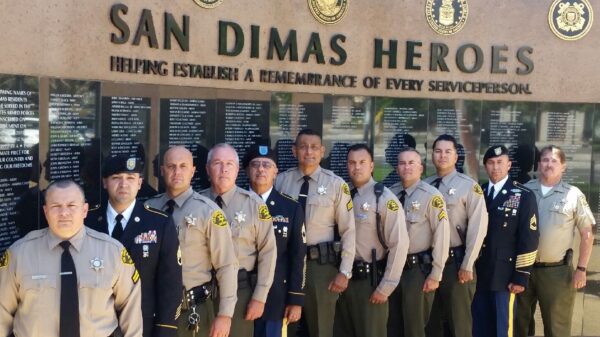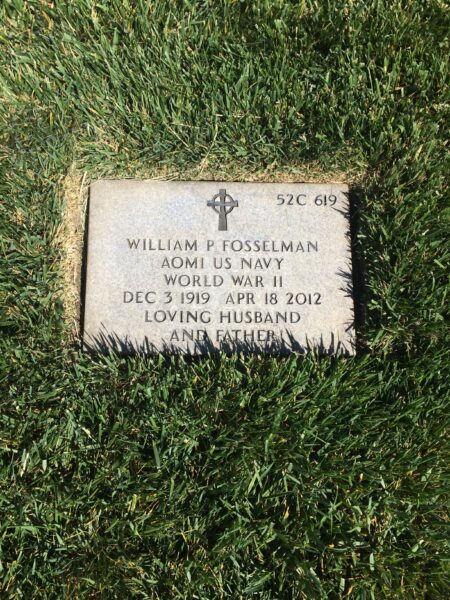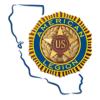
(Photo: Pete Fosselman)
By: SFC Pete Fosselman, CA ARNG, U.S. Army
A few years ago, my family and I went to the Presidio of San Francisco National Cemetery to bury my uncle next to his wife who predeceased him. While in the Presidio office, I was reading the eligibility requirements posted on a wall and it struck me that I perhaps do not qualify for National Cemetery burial. Prior to reading that notice, I had always thought I would someday be buried at Riverside National Cemetery along with my mom and dad and other immediate relatives.
Having read this information, I wrote to the U. S. Department of Veterans Affairs regarding my situation. Their response indicated that the Veterans Affairs Department has no statutory authority to make any changes to the current policies. They informed me that only Congress has the authority to change the current requirements.
Currently, the existing eligibility requirements single out many military reservists and National Guard members and prevents them from being buried in a National Cemetery. Even though they have voluntarily served our country and their respective branches of service, unless they are activated and sent to some specific assignment beyond training or serve 20-plus years to earn a military retirement, they are not eligible. While my interest in this request for a change is personal, I know it affects many others in this country.
My dad was a WWII U.S. Navy Veteran, and he passed away 12 years ago. We buried him at Riverside National Cemetery where one of my uncles and his wife are also buried. My mom is still with us at 104 years old and someday she too will be buried at Riverside National Cemetery along with my dad. The National Cemetery guidelines allow for spouses of Military Veterans to be buried there if the other spouse is buried there or will be buried there.

Veteran’s Memorial in San Dimas. Pete Fosselman fourth from the left. (Photo: Pete Fosselman)
In October 2018, my younger sister passed away from cancer at a very young age. My family was able to bury her at Riverside National because her husband was in the Navy, and he is eligible. As mentioned before, my aunt is buried at Riverside National since my uncle was in the Air Force during World War II. My mom will someday be buried in Riverside National along with my dad. Neither my aunt, sister nor my mom served at all. But due to their marriage, they are eligible, and this is a great benefit.
However, I served for 13 years, was honorably released, and I am not eligible.
There are some eligibility requirements where reserve members of the military organizations can be buried in a National Cemetery. They include obtaining a retirement pension after a minimum of 20 years of service, being killed or disabled while on military training or duty, or dying from an injury sustained while on training or duty. There are a few other extenuating circumstances but there is no need to address them.
After high school, I enrolled in college. During my second year, I got sick and was forced to drop out of college and I lost my student deferment. My dad owned a family business, and he was talking to another businessman in town. That person happened to be a first sergeant in the California National Guard. My dad told him how I lost my student deferment and he asked that I come talk to him.
A few days later I met with the first sergeant, and I joined the National Guard in 1969. A few months later, I was off to basic and advanced training. After completing my training, I returned home and was a member of a National Guard unit where I had the customary weekend drills and summer camps.
Four years after joining the Guard, I joined the Los Angeles County Sheriff’s Department. As a new employee with very little seniority, my regularly scheduled days off were weekdays and not the weekends, which I needed once a month to attend my drills. Taking a Friday, Saturday, and Sunday off once a month to attend my drill obligations used up most of my vacation time. Additionally, I needed two to three weeks off during the summer months to attend summer camp. As you can imagine, the time off I needed each summer was prime vacation time for the more senior employees. This caused a lot of personal issues with those individuals in the Sheriff’s Department.
During my initial six years in the National Guard, I received regular rank promotions. At the end of my six-year obligation, I opted to reenlist for another year and shortly thereafter, I was promoted to sergeant first class.
After completing my seventh year in the Guard, I was offered a position at the 63rd ARCOM (U.S. Army Reserve Command) in the Provost Marshal’s office by a friend employed by the Los Angeles Police Department. I left the National Guard and transferred to ARCOM, where I remained for six more years.
During my tenure in the National Guard and Army Reserve, we all knew we were subject to deployment and/or activation. As individual reservists, there was no way to avoid it. Vietnam was still going and would not end until my final year in the Guard. I was ordered to active duty twice and sent to Central and Northern California to assist in fighting out-of-control forest fires, but I was never activated for any other military assignment.
In my final year of the military at the ARCOM, I was a rookie patrol deputy at one of the Sheriff’s Stations. Unlike today, the Sheriff’s Department was not favorable or supportive of persons in the military reserve branches.
It was about this time after submitting a time off request for a weekend drill, the scheduling sergeant called me into his office. He told me rather simply that I needed to decide to be a sheriff’s deputy or continue in the military with all the weekend and summer commitments. In no uncertain terms, he told me to pick one or the other.
My spontaneous decision at the time seemed rather simple. I had completed my military obligation and my department career was just starting. Without any additional knowledge or knowing the benefits I was leaving, I opted out and continued my department career.
On one of my return visits to Riverside National Cemetery, I went into the office and specifically inquired about being buried in a National Cemetery. The clerk gave me some forms to mail to the U. S. Department of Veterans Affairs. A couple months later, I received copies of my records and promotions, a copy of my DD214 indicating an Honorable Discharge, and some included correspondence indicating that lacking any “activations for other than training” [meant] I was not eligible to be buried in a National Cemetery. Once again, this basically confirmed what I had read at the Presidio.
Personally, this seems wrong, and it affects other reservists who were never deployed. We joined up willingly and we did serve. We were subject to activation, but we were never activated to meet the current requirement for National Cemetery burial.
Currently, the various reserve components are short-handed. It seems that it would be a big recruiting benefit if persons joining the reserve components knew they could become eligible for National Cemetery burials.

(Photo: Pete Fosselman)
According to the correspondence I have received and my research, it will require action from Congress to modify the current eligibility requirements. I am unaware of why this regulation even exists. It seems prudent that if someone serves their country in any military capacity, fulfilling their military obligation, and is discharged under honorable conditions, they should be eligible.
Title 38 of the Code of Federal Regulations defines a Veteran as “a person who served in the active military, naval, or air service who was discharged or released under conditions other than dishonorable.” This definition explains that any individual who completed a service for any branch of the Armed Forces is classified as a Veteran if they were not dishonorably discharged.
I have sent correspondence to several different Congressional members and to date, all my letters have fallen on deaf ears. When I develop a lead that a particular person might be helpful and I correspond with them, they simply refer me back to my local congressperson, where I have not been able to gain any traction.
I am a member of the Los Angeles County Sheriff’s Star Post #309. I hope to gain some additional support on the local and state levels in approaching Congress to make this change. Two different directors of National Cemeteries have told me that “at the time of death,” an exception can be made for burial in a cemetery. While that might be helpful, I certainly do not want my family having to barter over my burial in one of the cemeteries. They will have enough issues to deal with, and getting an exception should not be one of them.
When Congress passed the Consolidated Appropriations Act of 2018, which was signed by President Trump, it included the Hmong Veterans’ Service Recognition Act. It allows certain Hmong Veterans who supported the U.S. Military to be buried in a National Cemetery. I have nothing but praise for those members of the Hmong Veterans who supported the U.S. Military.
However, it appears the U.S. Government feels that certain members of the Hmong military are more important than our own National Guardsmen and Reservists. I beg you to ask, why don’t our own National Guardsmen and Reservists who have faithfully served and supported our US Armed Forces get the same privilege?
Here’s how you can help. Copy and print this article and send it forward. Ask that this unintended injustice be fixed by passing legislation. Call it to the attention of your American Legion post and ask that they get involved. Then send this request to your U.S. Representative and to our U.S. Senators. I submitted a resolution through my Star Post #309. It got some traction at the state level but failed at the National Convention. There was no definitive response on why it failed.
If you need more information or are willing to assist, please contact Pete Fosselman, pdogmist@yahoo.com.














I totally agree with this article!